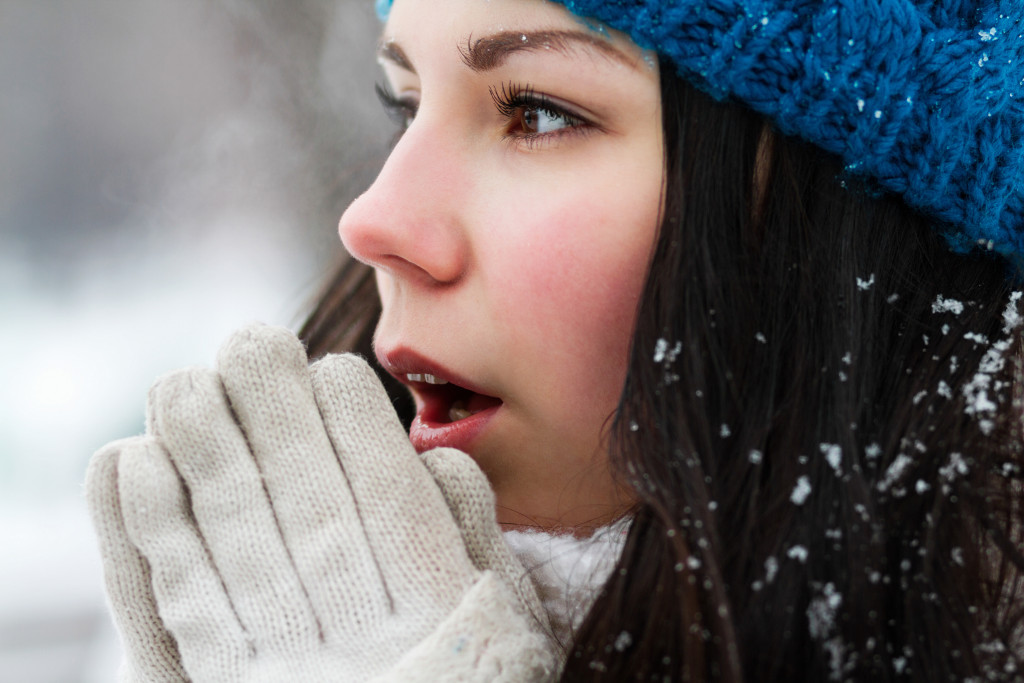Cold weather camping is a perfect way to experience great adventures like an overnight ski tour while enjoying the beauty of snowy landscapes. Winter camping can be a worthwhile adventure as long as you plan ahead, check the weather forecast, and bring along the right gear. Otherwise, you will set up yourself to the challenges of cold weather.
Below are some useful tips to keep in mind when planning a camping trip in winter.
1. Dress in Multiple Layers
Dressing up in layers is vital if you want to keep warm during your winter adventures. It allows you to manage your body temperature so that you stay warm and do not sweat as you engage in activities during the day.
Basically, you should carry three layers including thermal base layers that keep moisture from the body, middle layers that help retain body heat, and outer/shell layers for protection against moisture and wind. Remove layers if necessary to avoid sweating as this will only make you feel cold.
What’s more, make sure that you change from your hiking clothes to clean and dry clothes before you sleep. This will allow you to stay warmer during the night.
2. Choose the Appropriate Sleeping Bag
When selecting a sleeping bag, make sure that you evaluate its temperature rating, depending on the anticipated temperature of your destination. Generally, it is a good tip to go for a sleeping bag whose temperature rating is 10 degrees lower than the minimum expected temperature.
Nonetheless, you should keep in mind that the temperature ratings may not be perfectly accurate because of varying factors. To add to the warmth of your sleeping bag, consider adding a liner, which can provide about 5-25 degrees F warmth. Better yet, the extra layer helps to protect your bag and minimize wear and tear.
3. Select an Insulated Sleeping Pad
While you may invest in a high-quality sleeping pad, there won’t be much difference if you don’t have an insulated pad underneath. A sleeping pad is designed to offer insulation and cushioning to give you a comfortable night’s sleep.
For winter camping, it is highly recommended to use two sleeping pads to provide greater insulation and prevent heat loss from the cold ground. Keep in mind the R-value of the pad, which is its ability to resist the heat’s conductive flow. Sleeping pads with a higher R-value rating are more effective at thermal insulation than their counterparts.

4. Use Tent Heaters
Another trick to managing your body temperature is by using the right tent heater. The market is packed with different types of portable heater systems that come in handy for campers during extreme conditions. A top-notch portable heater is worth considering if you are planning for family camping trips since it lets you stay warm and enjoy different activities even during the cold weather.
Besides, you do not need to forgo the luxury of a portable heater if you have a tight budget. You simply need to rent a temporary heater from a reliable portable heater rental company.
5. Hot Water Bottle
Most campers utilize the hot water bottle method to stay warm at night. This is an easy trick that involves putting hot water in a water bottle and placing it between your legs in your sleeping bag at night.
Nevertheless, it is highly advised to place the water bottle near your core region as this helps to heat the blood faster, which will warm your body in no time. Just ensure that the lid is tightly sealed and take care not to burn yourself with hot water.
6. Eat and Hydrate Well
Since your body utilizes a lot of energy in cold temperatures, it is vital to eat and drink a lot to keep warm. You want to consume meals that are rich in calories that your body needs to burn to stay warm. It is important to consume high-protein and high-fat foods at night since they burn slower and will keep you sustained for longer.
It may seem unnecessary to drink water on winter camping as you would during summer. Nevertheless, your body needs to remain hydrated throughout as this can reduce fatigue. Also, warm drinks like hot chocolate can increase your ability to stay warm.
It is possible to enjoy the outdoors and go camping even during extreme conditions. Investing in the right gear and equipment will enable you to confront the cold with confidence and give you an exceptional winter camping experience. In the end, the better prepared you are, the more comfortable you will be camping in the snow.

